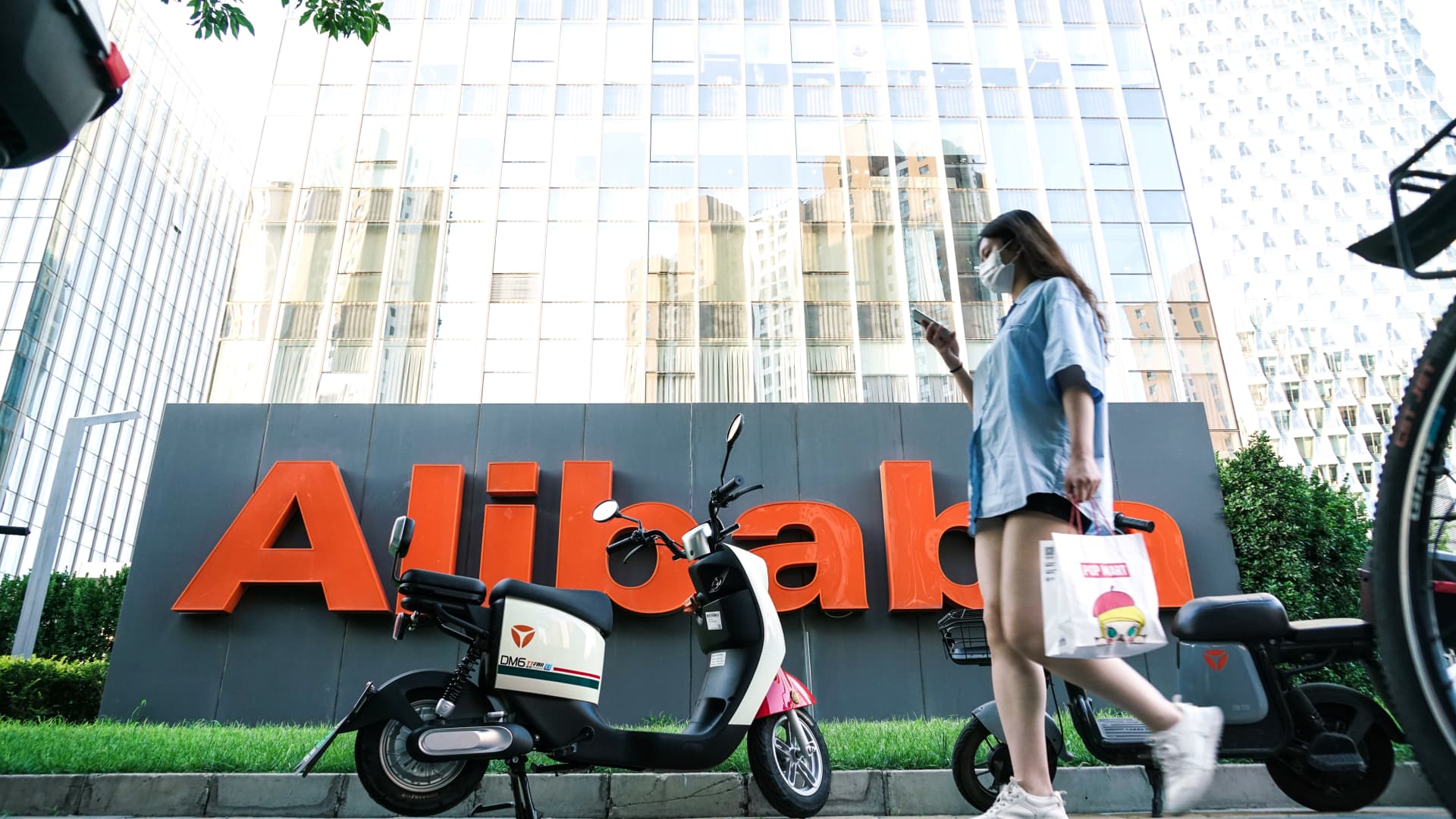Alibaba to split into 6 units and explore IPOs; shares pop 9%

Alibaba has faced growth challenges amid regulatory tightening on China’s domestic technology sector and a slowdown in the world’s second-largest economy. But analysts think the e-commerce giant’s growth could pick up through the rest of 2022.
Kuang Da | Jiemian News | VCG | Getty Images
Alibaba said Tuesday it will split its company into six business groups, each with the ability to raise outside funding and go public, in the most significant reorganization in the Chinese e-commerce giant’s history.
Each business group will be managed by its own CEO and board of directors.
Alibaba said in a statement that the move is “designed to unlock shareholder value and foster market competitiveness.”
Alibaba’s shares popped more than 9% in pre-market trade in the U.S.
The move comes after a tough couple of years for Alibaba which has faced slowing economic growth at home and tougher regulation from Beijing, resulting in billions being wiped off its share price. Alibaba has struggled with growth over the past few quarters.
Alibaba is now looking to reinvigorate growth with the reorganization.
The business groups will revolve around its strategic priorities. These are the groups:
- Cloud Intelligence Group: Alibaba CEO Daniel Zhang will be head of this business which will house the company’s cloud and artificial intelligence activities.
- Taobao Tmall Commerce Group: This will cover the company’s online shopping platforms including Taobao and Tmall.
- Local Services Group: Yu Yongfu will be CEO and the business will cover Alibaba’s food delivery service Ele.me as well as its mapping.
- Cainiao Smart Logistics: Wan Lin will continue as CEO of this business which houses Alibaba’s logistics service.
- Global Digital Commerce Group: Jiang Fan will serve as CEO. This unit includes Alibaba’s international e-commerce businesses including AliExpress and Lazada.
- Digital Media and Entertainment Group: Fan Luyuan will be CEO of the unit which includes Alibaba’s streaming and movie business.
Each of these units can pursue independent fundraising and a public listing when they’re ready, Zhang said.
The exception is the Taobao Tmall Commerce Group, which will remain wholly-owned by Alibaba.
$600 billion wipeout
Around $600 billion of value has been wiped out since Alibaba’s share price peak in October 2020. Since then, the Chinese government has cracked down on private technology businesses, introducing a slew of regulation and increasing scrutiny on the practices of domestic giants.
Alibaba’s fintech affiliate Ant Group was forced by regulators to cancel its mega public listing in November 2020. And in 2021, Alibaba was fined $2.6 billion as part of an antitrust probe.
Alibaba is now looking to reinvigorate growth. The company has grown into a giant that encompasses businesses from e-commerce to cloud computing to streaming and logistics.
The company sees the creation of the six businesses as a way to be nimbler.
“This transformation will empower all our businesses to become more agile, enhance decision-making, and enable faster responses to market changes,” Zhang said in a statement.
The reorganization also comes at a time when there are signs that Beijing is warming back up to technology businesses, as the government seeks to revive economic growth in the world’s second-largest economy.
Jack Ma, Alibaba’s outspoken and charismatic founder who was out of the public eye and travelling abroad for several months, has returned to China, in a move perceived as an olive branch from Beijing.









